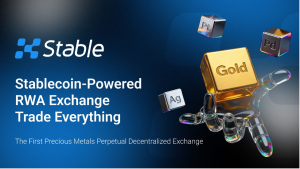Germany’s Traditional Finance Embraces Digital Assets and Cryptocurrencies

Cryptocurrency Regulation
Germany’s cryptocurrency sector has evolved into Europe’s most sophisticated and institutionally-integrated digital asset ecosystem. Anchored by clear regulatory frameworks through BaFin and enhanced by the EU’s MiCA compliance, the German market combines traditional financial expertise with innovative blockchain technology. Major banks like Deutsche Bank and Commerzbank now offer crypto services, while Berlin serves as the continental blockchain capital. Despite bureaucratic challenges and talent shortages, Germany’s progressive tax treatment for long-term holders and emphasis on institutional adoption positions it uniquely among European crypto hubs compared to Switzerland’s innovation-focused approach and Estonia’s digital governance model.
The Regulatory Foundation: BaFin’s Progressive Framework
Germany’s cryptocurrency ecosystem stands as a testament to thoughtful regulatory development, with the Federal Financial Supervisory Authority (BaFin) establishing one of Europe’s most comprehensive digital asset frameworks. Since 2020, cryptocurrencies have been classified as financial instruments, subjecting them to rigorous anti-money laundering protocols and securities regulations that have attracted serious institutional players. The licensing requirements for crypto custody, trading, and exchange services have created a surge in licensed entities, transforming what was once a gray market into a fully regulated financial sector. This regulatory clarity extends beyond mere compliance—it represents a strategic commitment to legitimizing digital assets within the broader German financial system. The alignment with the European Union’s Markets in Crypto-Assets (MiCA) regulation, which reached full implementation in 2024-2025, has further standardized market operations. This harmonization provides German crypto businesses with a clear pathway to European expansion while maintaining the rigorous standards that institutional investors demand.
Tax Incentives Driving Retail and Corporate Adoption
Germany’s taxation approach reveals a nuanced understanding of cryptocurrency’s dual nature as both investment vehicle and technological innovation. Private individuals benefit from a particularly attractive provision: crypto holdings maintained for over one year are exempt from capital gains tax, creating powerful incentives for long-term investment strategies. This tax structure contrasts sharply with the corporate treatment, where businesses face standard corporate tax rates on crypto profits while maintaining deductions for operational expenses. The differentiation reflects Germany’s broader economic philosophy—encouraging individual wealth building while ensuring corporate contributions to public revenues. These fiscal policies have practical implications beyond mere tax collection. They signal governmental confidence in cryptocurrency’s permanence and utility, encouraging both retail participation and corporate integration of digital assets into business models.
Traditional Finance Embraces Digital Assets
The integration of Germany’s banking sector with cryptocurrency represents perhaps the most significant development in the nation’s digital asset evolution. Deutsche Bank, Commerzbank, and DZ Bank have all entered the crypto space, offering custody and trading services specifically designed for institutional clients who require the security and compliance frameworks of traditional banking. The Boerse Stuttgart Digital Exchange (BSDEX) exemplifies this institutional approach, operating as one of Europe’s largest regulated crypto exchanges with backing from Germany’s second-largest stock exchange. This institutional foundation provides the credibility and operational excellence that large-scale investors require. Beyond pure-play crypto services, asset managers like DWS Group and Union Investment have launched crypto funds, bringing digital assets into the portfolios of pension funds and family offices. This institutional adoption creates a feedback loop—as more traditional financial institutions engage with crypto, the sector gains legitimacy and attracts additional institutional capital.
Berlin: Europe’s Blockchain Capital
Berlin has emerged as the undisputed center of German crypto innovation, hosting a concentration of startups, investors, and blockchain infrastructure that rivals any global financial center. The city’s appeal extends beyond mere geography—it represents a unique confluence of technical talent, regulatory support, and entrepreneurial culture. Ethereum Berlin and Blockchain Week Berlin serve as annual focal points for the global blockchain community, drawing participants from across Europe and beyond. These events reflect Berlin’s position as more than a national hub—it functions as a continental center for blockchain development and investment. The city’s startup ecosystem includes notable companies like Nuri (formerly Bitwala), which pioneered crypto banking services, and the IOTA Foundation, which focuses on Internet of Things applications and distributed ledger technology. Munich-based Tangany provides white-label custody solutions specifically designed for banks and fintech companies, demonstrating the sector’s evolution toward enterprise-grade services.
Venture Capital and Investment Flows
Germany’s crypto investment landscape reflects the country’s broader venture capital maturity, with specialized funds like Blockchain Valley Ventures, Greenfield One, and Cherry Ventures providing sector-specific expertise and capital. These funds understand both the technical complexities of blockchain technology and the regulatory requirements that German startups must navigate. The geographic distribution of investment activity spans multiple cities, with Berlin serving as the startup epicenter, Frankfurt leveraging its traditional finance connections, and Munich focusing on enterprise blockchain solutions. This distributed approach prevents over-concentration while allowing each region to develop specialized expertise. Institutional adoption extends beyond venture capital into traditional asset management. Pension funds and family offices are increasingly allocating capital to crypto assets, driven by both return potential and portfolio diversification objectives. This institutional demand creates stable, long-term capital sources that reduce dependence on retail speculation.
Comparative European Analysis: Germany, Switzerland, and Estonia
Germany’s position within the European crypto ecosystem becomes clearer when compared to its primary competitors: Switzerland and Estonia. Each country has developed distinct approaches that reflect their unique economic priorities and regulatory philosophies. Switzerland’s “Crypto Valley” in Zug operates with lighter regulatory touch, emphasizing innovation and privacy through its business-friendly environment. The Swiss Financial Market Supervisory Authority (FINMA) provides guidance while avoiding over-regulation, making it attractive for global blockchain foundations like Ethereum and Cardano. Switzerland excels in decentralized finance (DeFi) and privacy-preserving technologies, with crypto-friendly banks like Sygnum and SEBA bridging traditional and digital finance. Estonia’s digital-first approach leverages its e-Residency program and digital infrastructure to attract international blockchain startups. However, regulatory tightening following money laundering concerns in 2020-2022 has created a more compliance-focused but less permissive environment. Estonia’s strengths lie in e-governance, digital identity, and cross-border fintech solutions rather than pure cryptocurrency trading.
Challenges and Market Dynamics
Despite its regulatory advantages, Germany faces significant operational challenges that impact its competitive position. The bureaucratic complexity and cost of BaFin licensing can be prohibitive for early-stage startups, potentially driving innovation to more accessible jurisdictions. The talent shortage represents a more fundamental constraint, with high demand for blockchain developers and compliance experts exceeding supply. This scarcity drives up operational costs and can delay product development, particularly for startups competing with well-funded traditional financial institutions for the same talent pool. Market volatility remains an external factor affecting all participants, requiring companies to build resilient business models that can withstand crypto market cycles. German companies have generally approached this challenge through diversification and focus on institutional rather than retail markets.
Recent Developments and Future Trajectories
The Bundesbank’s active involvement in digital euro development through CBDC pilots represents Germany’s commitment to monetary innovation while maintaining central bank control. These wholesale and retail central bank digital currency experiments could reshape how Germans interact with digital money. German startups are increasingly focusing on decentralized finance (DeFi) and Web3 applications, with projects like Centrifuge gaining traction in real-world asset tokenization. This shift from pure cryptocurrency toward blockchain utility applications reflects the market’s maturation and regulatory acceptance. Sustainability concerns align with Germany’s broader climate commitments, pushing companies toward “green” blockchain solutions that minimize environmental impact. This environmental focus could become a competitive advantage as ESG considerations become more important for institutional investors.
Strategic Implications for Investors and Industry
Germany’s crypto ecosystem offers unique advantages for different types of market participants. Institutional investors benefit from regulatory clarity and traditional financial institution partnerships, reducing counterparty risks while maintaining exposure to digital asset returns. For startups and entrepreneurs, Germany provides access to sophisticated capital markets and regulatory frameworks that facilitate scaling, though at higher operational costs than more permissive jurisdictions. The trade-off between regulatory certainty and operational flexibility defines strategic decisions for many blockchain companies. The tokenization trend, particularly in real estate, art, and securities, represents significant growth opportunities as traditional assets migrate to blockchain infrastructure. German financial institutions are well-positioned to facilitate these transitions given their regulatory compliance and technical capabilities. Germany’s cryptocurrency sector has achieved something remarkable: the successful integration of innovative blockchain technology with traditional financial excellence. Through progressive regulation, institutional adoption, and strategic geographic positioning, the country has created Europe’s most mature digital asset ecosystem. While challenges around bureaucracy and talent remain, the fundamental trajectory points toward continued growth and global influence in the digital finance revolution.




